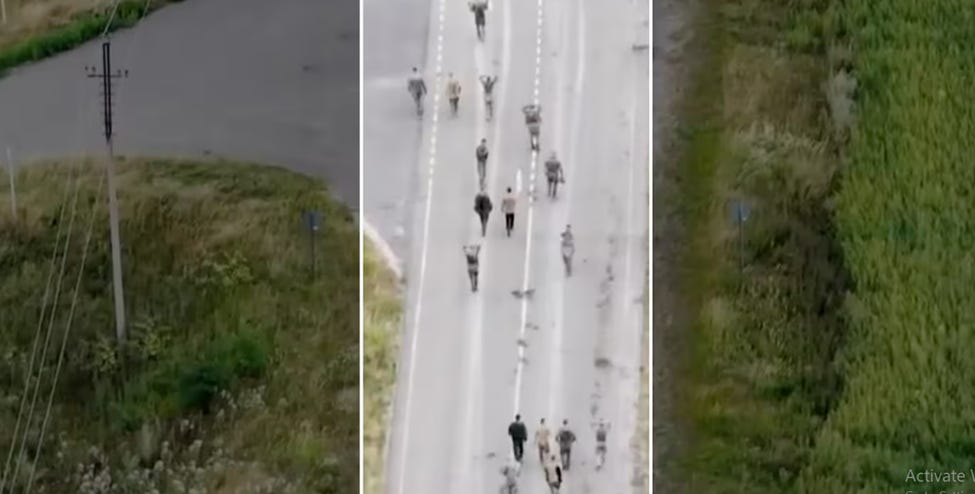The little-discussed Objective of the Kursk Offensive: Intel
by Benjamin Cook
Some say, Ukraine has captured up to 2,000 Russian troops in Kursk. Arguably, most estimates are at around 1000 or less. The Washington Post has visually confirmed 247.
This sounds fanciful - even more so because some of these prisoners are part of the FSB. Potentially a gold mine. What isn’t clear is if this is just reporting on what we already know: that the Russian border guards fall under the umbrella of the FSB?
The Russians say it is not.
One way or the other, and even if it is ‘just’ 247 captured Russians - that’s quite the workload for the professional interrogators of Ukraine.
I asked a colleague who is a trained interrogator about what the process of interrogation might look like, when this process starts, and what they might find.
It basically starts immediately. Ukrainian troops, trained in interrogation or not, will immediately ask questions about force numbers, equipment, plans and anything “dangerous” they can expect. If there are specific things the Ukrainian military and security services might want to know quickly, these questions could also be asked. In the American military there is a system for submitting a request and prioritizing intel that battlefield and security service commanders might want/need to know from new captures. This needed info is then disseminated forward. The Russian POWs are then transported to the rear.
To the rear of the action professional interrogators will systematically work their way through each and every POW. With 247++ at one time some kind of triage strategy must be used to prioritize who goes first. Information from one captured Russian will be vetted against already known truths as well as the info gleaned from other Russians. Interrogations can go on for hours, or even days. It’s why we shouldn’t expect QUICK actionable intel to be gathered, vetted, sent up the chain of command and then down to the commanders who can do something with it. But it is certainly happening.
Russians who try to “securitize” their answers will be given extra “attention”. This is basically giving partial truths. Like coordinates that are a digit off or old procedures that are no longer followed. This is a sure sign that they know something.
My colleague suggests that considering the professionalism of the Ukrainian army and security services it isn’t far-fetched to use US procedures to fill in the blanks of what the Ukrainians might be doing. One example of this is tactical interrogations.
It is well known that Ukraine has sent its special forces ahead of the larger incursion to scout the way and set up ambushes. This is a great opportunity to take prisoners and search for HVI/Ts. The High Value Individuals will get expedited treatment. Including on the spot tactical interrogations about the who/what/when/where of Russian forces nearby and anything else that the Ukrainians might prioritize. It can’t be confirmed, but it is very likely that Ukrainian special operators will have some interrogation training. Just like other nation’s special operators.
Your rank and file soldier of the Russian army isn’t going to know the launch schedule of the next Kaliber missile attack. But they will know rotation schedules, commanders names and locations, deployment of equipment, and lots and lots of scuttlebutt. All of which has to be vetted.
The captured Russians from Kursk are going to be a huge “get”. A treasure trove of actionable intel. But, it’s going to take time to process the intel through the system. I expect that in the next 60-90 days we will start to hear about some of these successes. I also expect to never hear about most of it. Especially if it’s important for us not to know! But be sure, the intel is FLOWING somewhere deep inside Ukraine.
Benjamin Cook
Find more at Researching Ukraine



Syrsky has just announced the total number of POWs from Kursk as 594.
Good luck in getting acitionable infos from conscripts